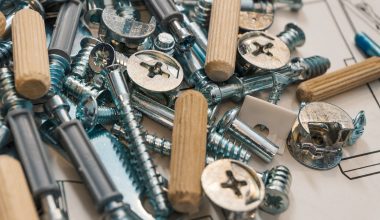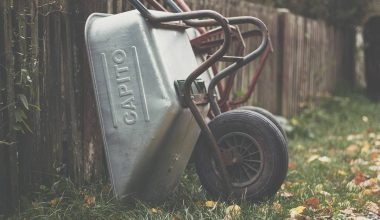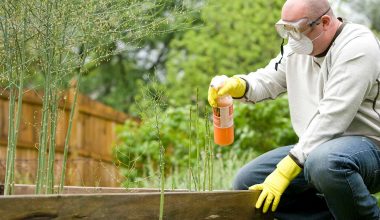When it comes to cooking, the addition of herbs can make all the difference to your dishes, yet many people leave them out due to either forgetting to buy them or the price of purchasing fresh herbs, Both of these problems can be solved by having your own herb garden bed.
Planting and growing your own herbs from home is so easy to do and has a variety of benefits, for not only yourself but your kitchen as well. Despite initial start up cost up and effort, planting your own herb garden bed can save you a lot of time and money in the long term.
What will you need?
Before you get started, you will need a few things for your herb garden:
Soil
Preferably garden soil or potting soil. Potting soil drains water more effectively than garden soil so it may be better for your herb garden bed, depending on what herbs you are wishing to plant.
Seeds or starter plants
Whilst seeds are the cheaper option, if money is not an issue then it is wise to invest in some starter plants. Starter plants are easier for beginners as they already give you a few weeks of growth and have a greater chance of successful growth than seeds.

Step by Step
Choose the area/location where you want to plant your herb bed garden
The most commonly grown herbs need three things – sunlight, water, and good soil. These things should be at the forefront of your mind when choosing where to place your herb garden bed. Ideally you should position the bed, so it gets at least six hours of sun per day.
Do some research and choose the herbs that you will be growing
It is important to research what types of herbs you wish to grow as this affects how you care and look after them.
Prepare the bed and soil
Mix some garden soil and compost into the existing earth in your garden. Why not try our leaf compost method.
Plant the herbs in your Garden Bed
Then dig a whole twice the length of the root of your herb plant, place the plant in and refill it back with earth/soil.
Maintenance
Water the soil as often as needed to keep it moist enough for the herbs. How often it needs watered will vary depending on the weather, the time of year and what type of herb it is. For example, in summer or hot sunny weather they might need watered every day or every other day. However, in cold rainy weather they will need watered less often as they rainwater will moisten the soil itself.
Certain herbs need more water than others, some require moist soil whereas others need quite dry soil so make sure to do your research so you can cater your watering habits to your plant’s needs.
Harvesting for your herb garden bed
When the herbs are ready to harvest, you can harvest them with a sharp knife or pair of scissors. Once again, this varies on the type of herb as some varieties will be ready to harvest before others.
Wash herbs and enjoy
Once harvested, wash the herbs carefully with water. You can store them for later, however they can lose flavour quickly, so it is recommended you use them straight after you have harvested them.
Benefits of having your own herb garden bed
Fresh Herbs Readily Available
A major advantage of having your own herb garden is that you will always have fresh herbs readily available, no matter the time of day. Meaning there is no last-minute popping to the store at dinner time.
Reduced Levels of Stress
Tending and caring for plants has been proven to alleviate stress as well as improve physiological and psychological health. A recent survey by Arboretum found that 42% of participants had improved mental health from being around plants.

Saving Money
If we are being honest, buying fresh herbs every time you need them can make a dent in your purse, especially if you use them often. You may run into some initial costs when first setting up and planting your herb garden bed however it will save you money in the long term.
What to grow in your Herb garden Bed
What herbs you plant in your herb garden bed will be entirely dependent on what you are using them for and what recipes you are intending to recreate. Some of the most popular choices include mint, parsley, basil, coriander, and chives.
It is also dependent on the time of year and weather conditions. Chives, for example, require little maintenance and can be grown in all seasons. Whereas basil can be grown all year round indoors, but it is only advised to be grown outdoors in summer months as it needs plenty of sun.
The moisture and temperature of the soil also can affect how long it takes for herbs to grow and how well they grow.
There is a variety of other factors that also have an impact on which herb is the best for you and your herb garden bed. The table below is a comparison of the most common types of herbs to help you decide which are the best fit for you and your garden:
| Herb | Type of soil required | Average amount of time it takes to grow fully | Best time of year for growth |
| Mint | Moist soil | 70 days | Spring or august, but can be grown all year round |
| Parsley | Warm soil, not too moist | 40 – 60 days | Spring – Early Summer |
| Basil | Moist soil | 50 – 75 days | Summer |
| Coriander | Well-drained soil | 40 – 45 days | Late spring – summer |
| Chives | Loose, well-drained soil | 90 days | All year round |
Tips for your Herb Garden Bed
- Less can often be more when it comes to growing herbs in your own herb garden bed. Overcrowding caused by herbs being planted too close together can lead to poor growth as they do not have much space to sprout. Therefore, it is better to plant only a few herb plants and have them grow to their full potential than have a lot of herb plants only half or poorly grown.
- Try to use natural methods of pest and weed control. If you plan on eating the herbs it can be detrimental to your health and wellbeing if you use a chemical method.
- A herb garden bed can be used for different purposes other than culinary. You can grow herbs for tea-making such as chamomile, peppermint, and mint. Herb garden beds can be used for medicinal purposes as well, growing herbs such as St Johns Wart.






